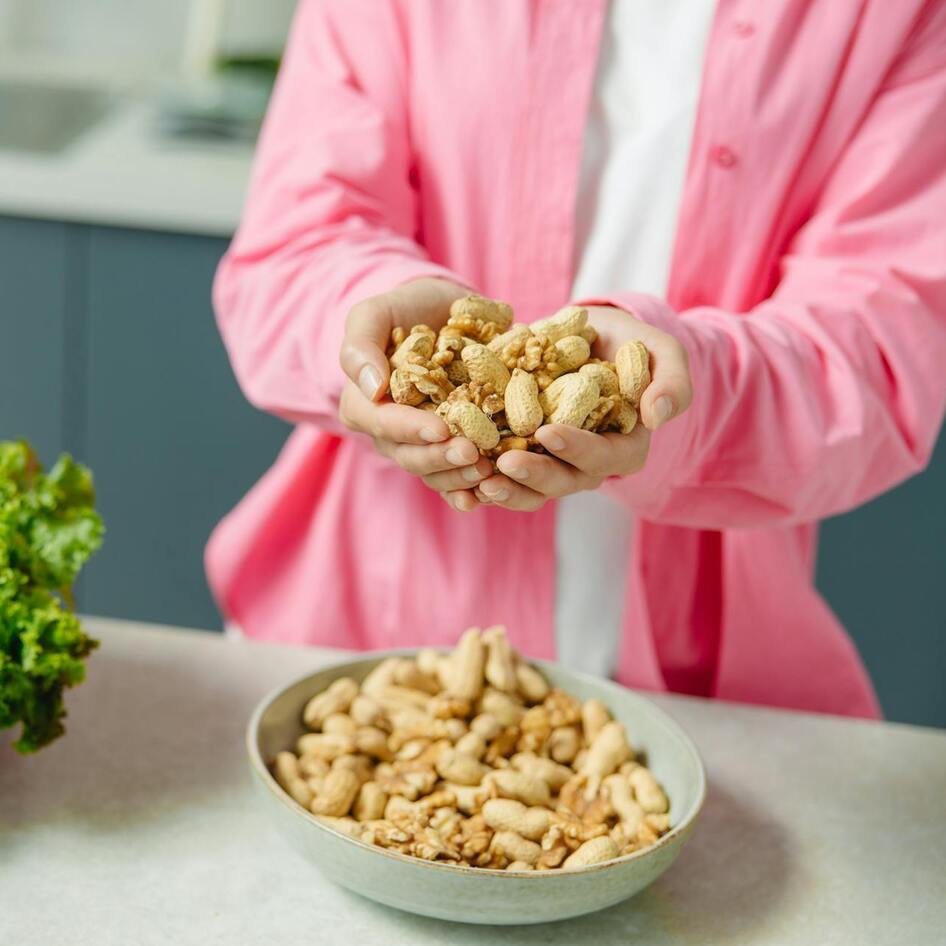It may be small, but the thyroid plays a significant role in managing overall health. This butterfly-shaped gland in the neck releases hormones that regulate metabolic rate, which affects how quickly our cells convert nutrients into energy. It also helps control temperature and impacts heart rate. However, for some people, the thyroid is underactive, leading to unpleasant symptoms that can significantly affect quality of life. Fatigue, weight gain, joint pain, and sensitivity to cold temperatures are common symptoms of hypothyroidism, a condition that affects millions of Americans daily.
The primary treatment for hypothyroidism is medication, but research suggests certain dietary changes—such as limiting processed foods and increasing whole foods—might also help ease symptoms. Read on to learn more about how diet could assist in managing hypothyroidism. But first, let’s dive deeper into the condition itself.
How does hypothyroidism affect your life?
According to the American Thyroid Association, about 20 million Americans are living with some form of thyroid disease. While some have an overactive thyroid (hyperthyroidism), the most common condition is hypothyroidism.
In hypothyroidism, the thyroid gland doesn’t produce enough hormones, primarily thyroxine (T4) and triiodothyronine (T3). This deficiency causes the body’s systems to slow down, often leading to symptoms like fatigue, weakness, aches, and sensitivity to cold. Left untreated, symptoms can worsen over time. They may also include hair loss, a slowed heart rate, constipation, and weight gain.
 Pexels
Pexels
BECOME A VEGNEWS VIP: Get exclusive product deals, freebies, and perks galore!
“When thyroid hormone levels are low, the body’s metabolic rate decreases, resulting in the body burning fewer calories than usual,” Angel Luk, RD, co-founder of Food Mysteries, told VegNews. “If hypothyroidism is left untreated, the eventual result is unintentional weight gain, even if no other lifestyle changes have been made.”
It’s important to note, however, that hypothyroidism symptoms can be caused by many other conditions. If you’re concerned about having an underactive thyroid, it’s crucial to consult your healthcare provider for proper diagnosis and treatment.
“It would be neat and tidy to have a convenient equation that told you if you had, say, three of those, your thyroid was to blame,” Afreen Shariff, MD, told Glamour. “But unfortunately, that’s not the way things work. Everyone’s symptoms and experiences are different.”
What diet is best for hypothyroidism?
If diagnosed with hypothyroidism, your healthcare provider will likely prescribe medication. However, they may also recommend dietary changes.
“Medication is the first line of treatment for hypothyroidism, but eating a balanced and nutritious diet may help reduce symptoms and support your overall health,” reports Healthline.
According to the publication, dietary interventions might help to improve thyroid function but also help you maintain a “moderate body weight” and reduce the risk of nutritional deficiencies, which could make you feel more fatigued and weak.
Lak agrees. She explained: “Diet helps manage the increased risks for weight gain, high cholesterol levels (low-density lipoprotein, or LDL), and constipation.” She added: “A plant-based, whole-food diet that follows the Mediterranean eating approach can help lower the risks of developing heart disease and obesity, both of which people living with hypothyroid are more susceptible to.”
 The All Natural Vegan
The All Natural Vegan
Luk emphasizes the importance of iodine for thyroid health, as it’s necessary for hormone production. While iodine is commonly found in seafood and dairy, plant-based sources include iodized salt and seaweed. Kelp noodles and sea moss are good examples.
That said, it’s important not to go overboard on iodine. “Iodine supplements are not recommended for people with hypothyroidism because consuming too much iodine can also be harmful,” says Lak. “Adults need about 150mcg of iodine per day, and this is best met through food sources and iodized salt.”
She also highlights the importance of vitamin B12, which can be found in fortified plant-based foods, including nutritional yeast. “In some studies, low B12 levels have been linked to increased hypothyroid risk,” she explains.
In the past, there was concern that goitrogens—compounds found in cruciferous vegetables like cabbage, broccoli, and kale—might interfere with thyroid function. However, recent studies suggest moderate consumption of goitrogenic foods is safe for most people, including those with hypothyroidism.
In 2024, one comprehensive review of previous thyroid studies published in the International Journal of Molecular Sciences suggested that goitrogenic foods may not be as harmful as originally believed. “The presented studies cast doubt on previous assumptions that brassica plants have antithyroid effect in humans when consumed in reasonable and accessible amounts as part of a daily diet,” the researchers claimed.
Staying away from ultra-processed foods is still advised, as these can increase inflammation and oxidative stress in the body. Instead, focus on nutrient-dense whole foods.
“A hearty lentil stew served with whole grain bread offers soluble fiber that can ease constipation while lowering lousy cholesterol levels,” says Lak. “As a substitute for more processed snacks, try air-popped popcorn sprinkled with nutritional yeast for vitamin b12.”
For more plant-based stories like this, read:
JUMP TO ... Latest News | Recipes | Guides | Health | Subscribe










